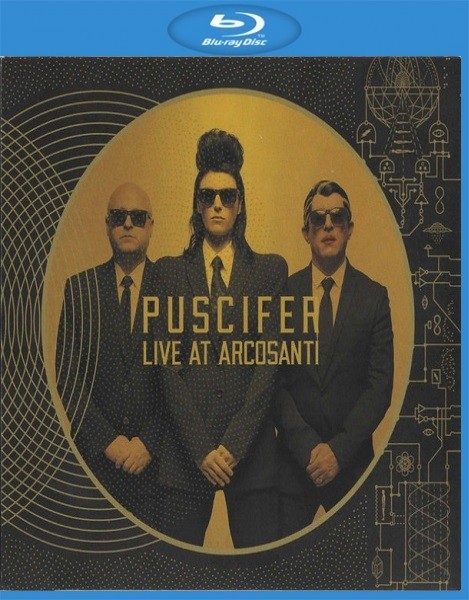
Blodwyn Pig – Getting To This
Label: A&M Records/SP 4243 | Release: 1970 | Genre: Progressive-Rock
Vinyl | LP Cover (1:1) | FLAC | 24bit/96kHz & 16bit/44kHz
Less than a year after the release of their début, Blodwyn Pig returned with what would prove to be their final album (although further material would eventually appear in the Blodwyn Pig name as a result of a reunion many years later). Once again, the band revolves around the blues leanings of Mick Abrahams and the jazz influences of Alan Lancaster.
Abrahams dominates the early song-writing, composing all the tracks (one with Andy Pyle) on the first side of the LP release. The opening “Drive me” mixes jazz rock with blues rock to come up with a catchy up-beat introduction to the album featuring a gritty vocal. The contrast with the vocal style on the following “Variations On Nainos” is quite stark, the latter being more in line with Abrahams subsequent solo album. In an obvious effort to out -Tull Abrahams former band, “Variations On Nainos” features prominent flute alongside some good lead guitar. The singing through a glass of water verse is an indulgence too far though!
“See My Way” is the longest of the Abrahams songs at a shade over 5 minutes. There is a bit of an American feel to this steam-rolling blues rocker, which makes it among the most appealing of the set. The brief “Long Bomb Blues” takes the American feel south, with picked guitar dominating. The relentless pace of the Abrahams songs continues on “The Squirreling Must Go On”, another powerful slice of guitar rock. The lack of a vocal leaves the song feeling a bit like an unfinished backing track, but it is enjoyable nonetheless.
Alan Lancaster is restricted to writing a single track, but he comes up with an eight minute suite in four parts entitled “San Francisco Sketches” . The sections feature mainly San Francisco related sub-titles, setting off with a a semi-improvised jazz workout. Surprisingly, the “Telegraph Hill” section features a Ray Conniff singers style vocal, but apart from that the track is instrumental. Many will probably find this to be the high point of the album, but for me it is prosaic. Andy Pyle receives a rare sole writing credit for “Worry”, a song which sounds for all the world like another Abrahams composition. “Toys” is something of an oddity, being a soft reflective acoustic number. The singer-songwriter feel to the track makes for a pleasant contrast.
Drummer Ron Berg also gets a writing credit for the brief “To Rassman”, a nonsensical calypso song. The album closes with “Send Your Son to Die”, a track which featured on the Island records sampler “Bumpers”. The track sums up the band well, blending the blues rock and the jazz rock with an infectious rhythm section.
Overall, an album which is the equal of its predecessor. Blodwyn Pig were never going to be the most original band of the early 70’s, or the best. As bands who also served go, they were however one of the better ones.
Following the release of “Getting to this”, Mick Abrahams left the band. While the name was briefly retained and later resurrected, Blodwyn Pig’s bacon was effectively cooked.
progarchives.com

Blodwyn Pig – Ahead Rings Out
Label: A&M Records/SP 4210 | Release: 1969 | Genre: Progressive-Rock
Vinyl | LP Cover (1:1) | FLAC | 24bit/96kHz & 16bit/44kHz
Blodwyn Pig will probably forever be considered an offshoot of Jethro Tull, as the band was put together by Mick Abrahams. Abrahams was a co-founder of Tull, but his desire to retain the direction that band took on their début album “This was” was at odds with that of Ian Anderson. Anderson prevailed, Abrahams left after just one album, and as far as Tull are concerned the rest is history.
Abrahams did not sit on his hands though, and quickly put together a band to take his vision forward, and indeed initially to rival Jethro Tull in terms of success. We should not though consider this Abrahams plus backing, the rest of the line up is strong including Andy Pyle ex of the Kinks and a future member of Wishbone Ash. The multi-talented Saxophonist Jack Lancaster brings to the band the opportunity for a diversity of sounds, Lancaster going on to become an accomplished session musician.
This, Blodwyn Pig’s first album, consists of 9 tracks primarily written by Abrahams and/or Lancaster, with the other band members (including drummer Ron Berg) receiving co- writing credits on a couple of tracks. The music is firmly rooted in the blues which Abrahams had grown to love, the opening “Its only love” being an upbeat blues rocker with a big band style sound. Abrahams recalls that at the time of recording, he exploited the recent availability of 8 track recording to “thicken out the sound”.
If the first track is unashamedly commercial, the second “Dear Jill” is a delightful downbeat blues with sleepy sax and atmospheric slide guitar. Abrahams vocals here are among the best he has performed. “Sing Me a Song That I Know” is relatively prosaic, and very much of its time (over 40 years ago!).
Without even checking the credits, it is apparent that “The Modern Alchemist” is the first of the Jack Lancaster compositions, the track being a jazz based instrumental with sax and guitar leads. It is hardly original, even for back then, but the frantic pace does allow the band to let their hair down. “Up and Coming” is the first of the songs to be credited to all the band members. Here they revert to the atmospheric blues of “Dear Jill”, the track being similar to Uriah Heep’s “Lucy blues” recorded around the same time.
“Leave It With Me” is the second of the Lancaster written instrumentals; once again the track is a semi-improvised workout for the band, Lancaster’s tracks being noticeably different from the main blues pull of Abrahams. “The Change Song” opens with some undecipherable cockney chatter before settling down to a folk tinged acoustic ditty. The USA version of the album differed from the UK release through the inclusion of “See my way”, a song which would appear on the band’s second album in the UK. The track certainly has a bit of an American feel, being a driving blues rock number. Abrahams is in good voice on the track, which benefits from an adventurous arrangement, including what Abrahams refers to as a “Bolero” section.
The album closes with the 6 minute “Ain’t Ya Coming’ Home, Babe?”, where Lancaster’s jazz drive meets Abrahams blues thrust head on. The result is an oddly progressive melting pot of sounds which works in the main, but can sound a bit messy.
Overall, an impressive début from a band who failed to achieve all they were capable of. One of the highlights of the album is the stereo separation of the main instruments, which makes for a wonderfully clean, uncluttered sound overall. Not necessarily an album for Jethro Tull fans, but those with a bent towards blues, perhaps through bands such as the Groundhogs, should find much to enjoy here.
The CD remaster has a fine supply of bonus tracks. As most of these are written by Mick Abrahams, they inevitably lean towards the blues side of the band, but most would have made for worthy additions to the original album. “Walk on the Water” shines particularity well, although the sudden fade implies a work in progress.
progarchives.com





